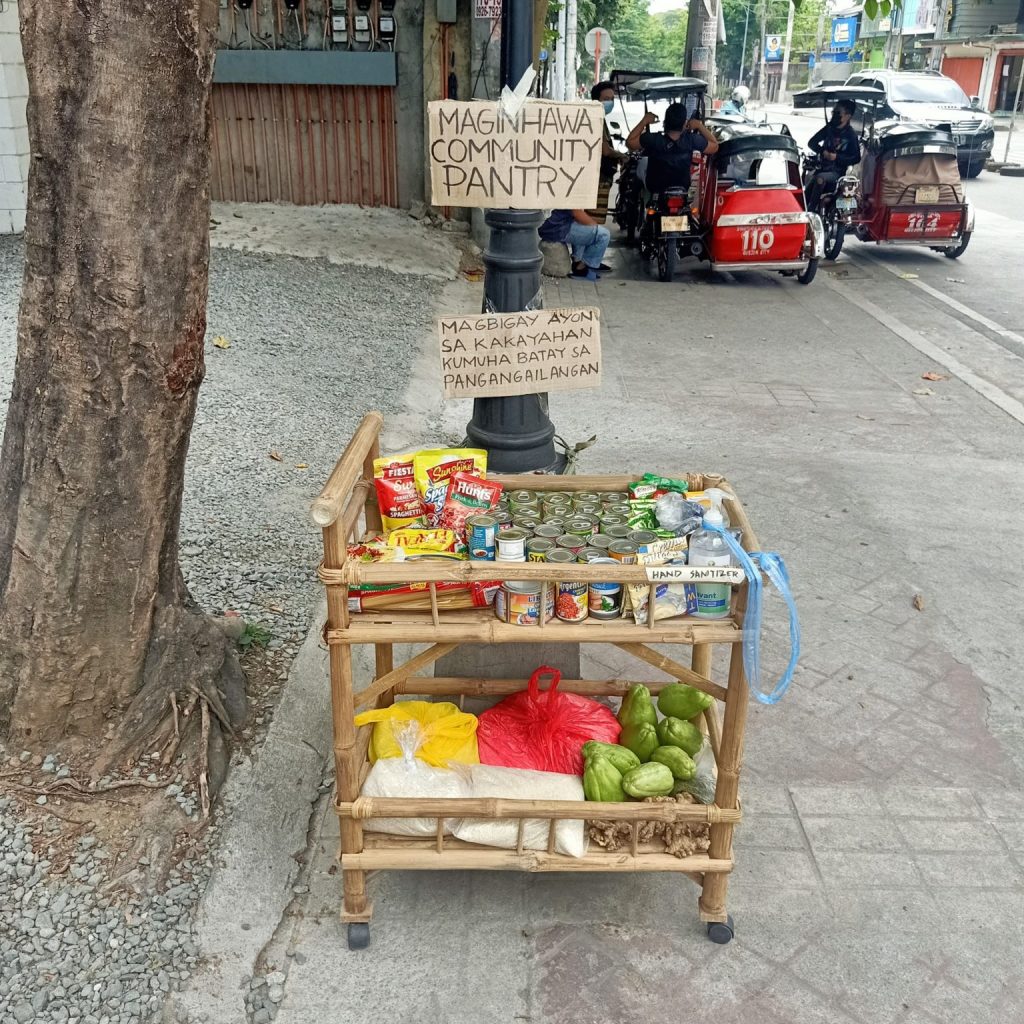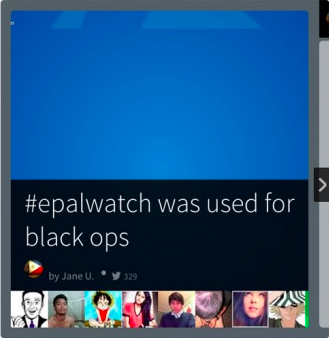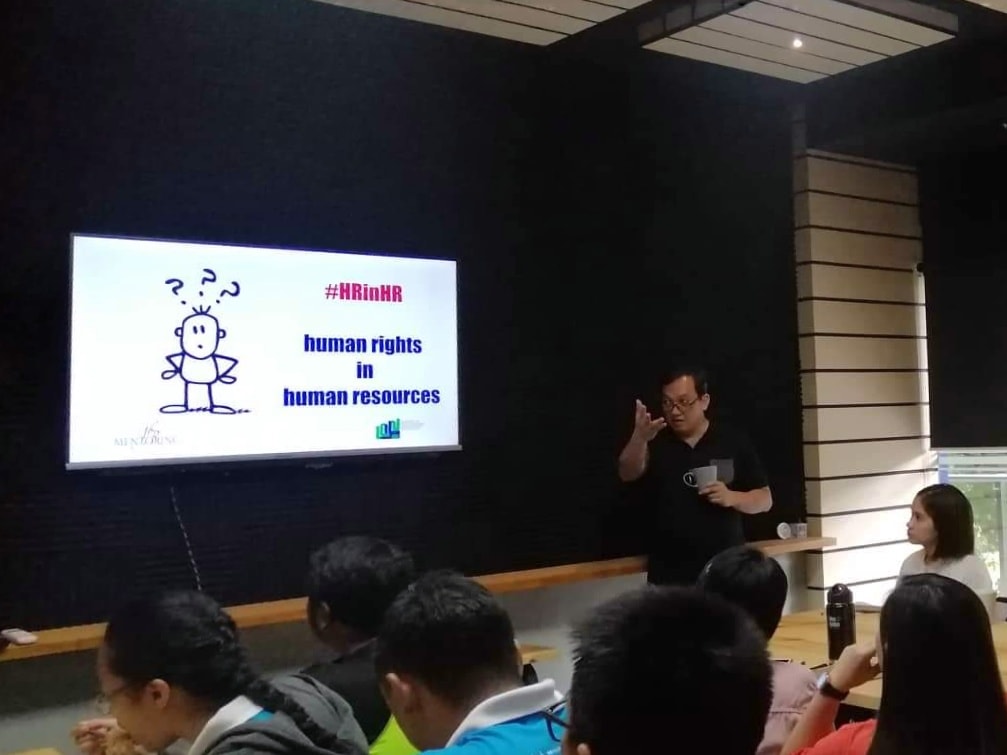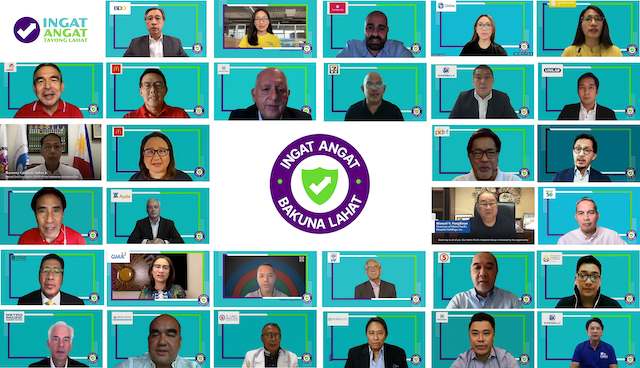The ripple effect of community pantry
Acts of kindness and sharing are manifested in many ways. The community pantry phenomenon allowed us to view the bayanihan spirit in a new light. The quote “Magbigay ayon sa kakayahan, kumuha batay sa pangangailangan” is a sign that hangs in the first community pantry at Maginhawa, Quezon City, which is open from 6 a.m. till 6 p.m.According to Ana Patricia Non, otherwise known as “Patreng,” the Maginhawa Community Pantry was conceived out of the inept pandemic response and that people deserve better.
People can find rice, vegetables, eggs, snacks, canned goods and even vitamins stacked on her bamboo cart with a reminder to “give what you can and take what you need.” Hundreds of residents from nearby barangay (villages) would queue towards Patreng’s cart hoping to bring some food for their family table. Donations in cash or kind poured in from farmers, fishermen, organizations and other netizens. “This is not charity. This is like mutual aid. We’re all helping each other,” Patreng told the Inquirer in an interview.
Community service in and out of her home is not new to Patreng. Her mother and fellow advocate Zena Bernardo established a community kitchen during the pandemic. In less than a week, one can see the ripple effect from the Maginhawa Community Pantry in at least 350 other places based on a Google document created at the Community Pantry PH Facebook group. From 70 pantries in Quezon City, the movement has reached as far as Zamboanga and Benguet. Before the Maginhawa Community Pantry went viral, Patreng, her mom and family members were very much involved in the operations. To make it sustainable, they realized the community needs to be involved. Most of the group chats on Messenger and Viber shared donation details and finding sources of items for their very own community pantry.
 Photo via Ana Patricia Non
Photo via Ana Patricia Non
Because of alleged red-tagging, Patreng had to pause the operations in Maginhawa. She informed the public in a Facebook post she feared for her safety and the safety of the pantry volunteers. This fear stemmed after the Quezon City Police District (QCPD) and the National Task Force Ending Local Communist Armed Conflict (NTF-Elcac) shared posts linking community pantries to communist groups. I am outraged at the intimidating presence and collection of personal data by law enforcers. The concept of a community pantry is not new. Since the beginning of the Covid-19 pandemic, free fridge programs have popped up across the United States. In a VOX article, Katherine Oung reported “anyone can access these fridges for free and the organization’s unofficial motto is taking
what you need, leave what you can.”
Red-tagging and harassment has to stop. Regardless of political leanings, sharing is caring. The community pantry acts as a grassroots response to the dire food insecurity crisis. Starting a community pantry in your area is encouraged. Here are some tips from the Community Pantry PH Facebook group:
– Send out the bat signal.
Ask family or neighbors if they want to help or know anyone who wants to. Set up a group chat and make sure these are people who want to help out actively, too. You might also think of posting a call on your Facebook or other social media.
– List down what you need.
Start an inventory either via Excel or paper. Aside from food you want to share, write down materials you need and the people who have expressed desire to share or help out.
– Find a spot that has lot of foot traffic.
Pick a location accessible to you or your group. If you live in a high-traffic area, outside your own home might be good. You will also need an address to share for anyone interested in sharing.
– Be creative about your setup.
Use whatever you and your friends have. An old shelf, shoe rack, or boxes as makeshift tables are good to start with. Put up a sign that explains the community pantry. Be creative. Invite people to take what they need and give what they can. Tell people about it. And don’t forget to translate.
Visit Community Pantry PH Facebook Group for more details.
First published at the Sunday Business & IT, April 25,2021



